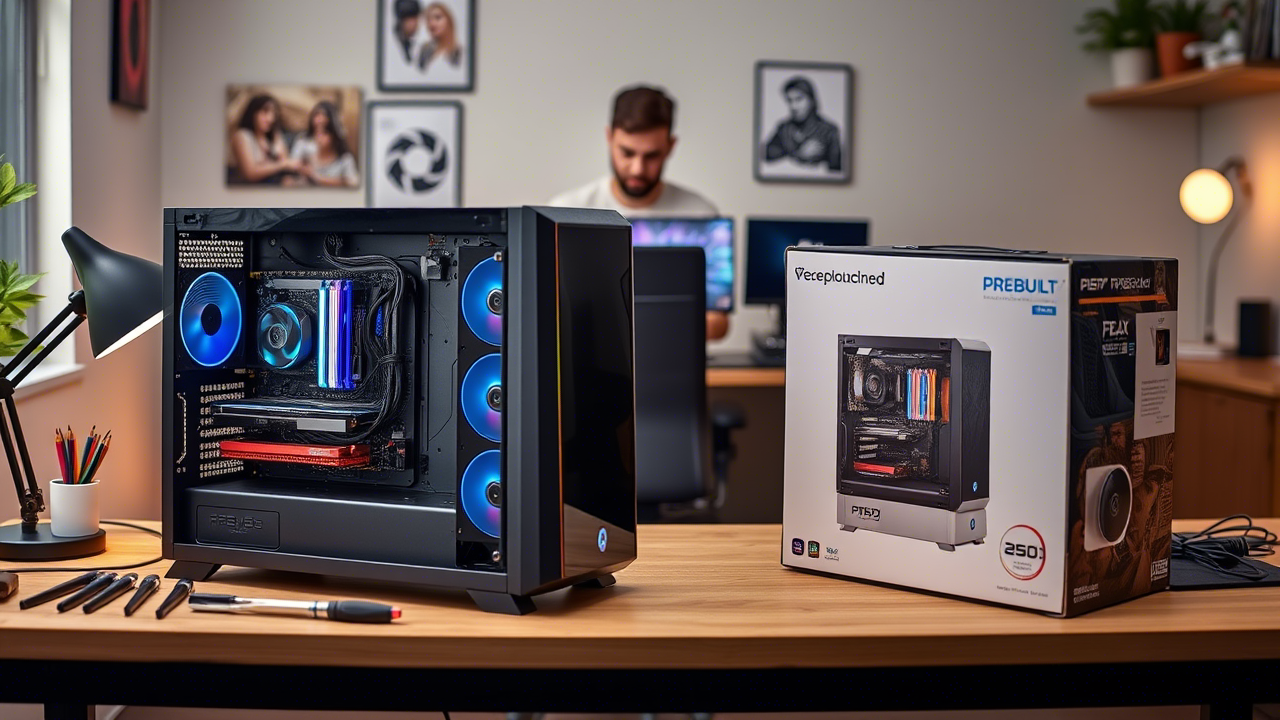Custom-Built vs. Prebuilt PCs: Finding the Right Fit
Custom-Built vs. Prebuilt PCs: Finding the Right Fit
Choosing between a custom-built PC and a prebuilt one is a decision that often feels like standing at a crossroads. Both paths lead to a functional computer, but the journey—and the destination—can differ significantly. With a calm and thoughtful approach, let’s explore the benefits and considerations of each option to help you decide which aligns best with your needs.

The Case for Custom-Built PCs
Building your own PC is like crafting a tailored suit: every piece is chosen to fit your specific preferences. This approach offers unparalleled flexibility. You select the processor, graphics card, memory, storage, and even the case design, ensuring the system matches your exact requirements, whether for gaming, video editing, or everyday tasks.
One of the standout advantages is cost efficiency. By sourcing components yourself, you can often save money compared to prebuilt systems with similar specs, especially if you shop during sales or opt for slightly older but still capable parts. Additionally, custom builds allow for future upgrades. As technology evolves, you can swap out individual components—like adding more RAM or upgrading the GPU—without replacing the entire system.
However, building a PC requires time, research, and a bit of technical know-how. You’ll need to ensure component compatibility, manage cables, and troubleshoot any issues during assembly. For those who enjoy hands-on projects, this process can be rewarding, offering a sense of accomplishment and a deeper connection to the machine. Yet, for others, the learning curve and potential for mistakes might feel daunting.
The Appeal of Prebuilt PCs
Prebuilt PCs, on the other hand, are like buying a ready-made meal: convenient, quick, and reliable. These systems are designed, assembled, and tested by professionals, saving you the effort of researching and building. For those who want a computer that works out of the box, prebuilts are hard to beat. They often come with warranties, customer support, and pre-installed software, making them a stress-free choice for beginners or those with busy schedules.
Another benefit is the streamlined purchasing process. Instead of comparing dozens of components, you select a system based on its overall specs and price. Many prebuilts also include thoughtful touches, like optimized cooling systems or RGB lighting, that enhance the user experience without requiring extra effort.
That said, prebuilts often come at a premium. Manufacturers charge for assembly, branding, and sometimes proprietary components, which can limit upgrade options down the line. You may also encounter systems with unbalanced configurations—like a powerful GPU paired with insufficient RAM—that don’t fully meet your needs. For those who value customization or long-term flexibility, these limitations can be a drawback.
Balancing Your Priorities
The choice between custom-built and prebuilt PCs ultimately hinges on your priorities. If you value control, cost savings, and the ability to upgrade over time, building your own PC offers a rewarding path, provided you’re comfortable with the effort involved. If convenience, speed, and professional support are more important, a prebuilt system delivers a hassle-free solution.
There’s no right or wrong answer—only what suits your lifestyle and goals. Take a moment to consider how you’ll use your PC, your budget, and how much time you’re willing to invest. Whether you’re piecing together a dream machine or unboxing a ready-to-go system, the goal is the same: a computer that feels like home.